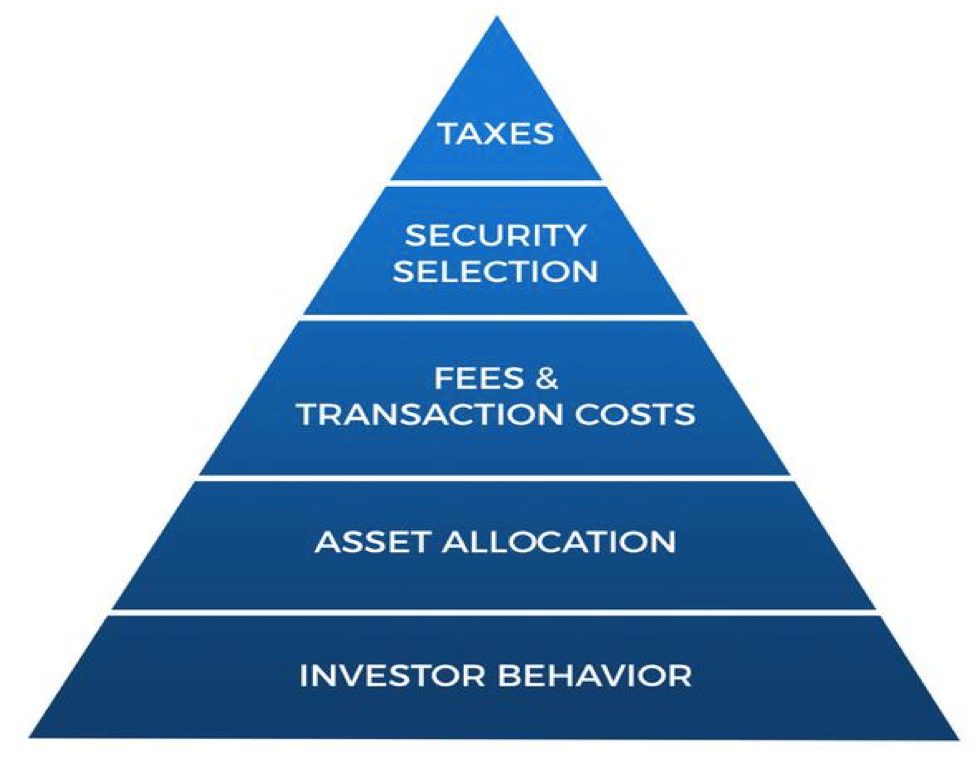6 money making secrets for equity investors
Investor psychology is arguably the biggest determinant of long term investment success, and has a greater impact upon long term investment performance than even asset allocation or stock selection. In this article we look at 6 money making secrets based upon the powerful world of behavioral finance.

“Investing is not the study of finance. It’s the study of how people behave with money. And behavior is hard to teach, even to really smart people. You can’t sum up behavior with formulas to memorize or spreadsheet models to follow. Behavior is inborn, varies by person, is hard to measure, changes over time, and people are prone to deny its existence, especially when describing themselves. The finance industry talks too much about what to do, and not enough about what happens in your head when you try to do it.” Morgan Housel, Collaborative Fund
We agree and believe that understanding behavioral finance is the difference between good and great long term performance. Most people are far more comfortable studying finance as an objective and defined subject but in our experience their time would be better spent looking at themselves and how they make their investment decisions. Read on for 6 money making secrets based upon behavioral finance concepts…
- Become aware of and then let go of everything you think you know
“The more you know, the more you know you don’t know.” Aristotle
We all believe that our life experiences provide us with an accurate picture and understanding of how the world actually is and has been in recent times. However, this could not be further from the truth. We all experience our own experiences and have very little understanding of what has been happening for the 8 billion other humans on the planet at the same time. In other words, our historical experiences are extremely inaccurate as a general guide as to what will happen in the future. As a result, one of the most productive behavioral strategies is to become more aware of your own historic biases and start discounting them as far from accurate. In other words, by understanding that you don’t know nearly as much as you thought you did, you are freeing yourself up to build a far more accurate picture of the investment world today. This is why some of the world’s most successful investors are also very humble people.
- Remain optimistic - don’t let the pessimists spoil your day
“I have observed that not the man who hopes when others despair, but the man who despairs when others hope, is admired by a large class of persons as a sage.” John Stuart Mill
How many articles have predicted global recessions since the last global financial crisis? The answer is a lot. On a deep psychological level we are programmed to listen to all warnings of bad news coming; our survival instinct makes us sit up and listen in case the information we are hearing could help us survive. This is very reason the vast majority of news stories are so negative.
However, the reality is that no one knows what is going to happen in the short, medium and long term. No one, including all the market experts.
Having said that and recognizing that markets will go up and down like they always have, it is worth remembering that the long term global market trend has always been up as the global economy has always grown over time. So why worry about a multitude of uncontrollable factors when the long term trends are supportive?
- Remember and try to understand the eighth wonder of the world: compound growth
“Linear thinking is so much more intuitive than exponential thinking.” Michael Batnick
“The greatest shortcoming of the human race is our inability to understand the exponential function.” Physicist Albert Bartlett
Most of us have probably seen compound growth tables and are aware of the incredible power of compounding, but do we really appreciate it? One of the main challenges with truly understanding compounding is that the maths often doesn’t make intuitive sense; the numbers just look too large when compounding has occurred for some time so most of us discount the concept of compounding as no more than a great story to explain why we should all invest for the long term.
However, in our experience compounding deserves a lot of attention with a view to making it a core investment philosophy. Great investment returns are achieved by generating good returns on a recurring, long term basis and letting the incredible power of compounding do the rest of the work for us.
- Let go of social proof when investing
“Opportunity is almost always inversely correlated with popularity.” Morgan Housel, Collaborative Fund
In our experience, very successful investing often requires the ability to think quite differently from the crowd, to be truly contrarian. However, the reality of being a contrarian means not being agreed with by many others, and often having a polar opposite opinion to many highly intelligent people. How many people have the ability to be constantly told they are wrong and to then take the contrarian action anyway? It is a rare skillset which takes many years of developing.
In our experience, the key step here is let go of social confirmation of what you are thinking as it becomes much harder to go against the herd when the herd keeps telling you that you are wrong.
- Stop looking for something to do - inaction is your friend as an investor
“Our favorite holding period is forever” Warren Buffet
Most people are used to thinking that hard work involves taking action, and they tend to bring this way of thinking into their investment philosophies. As a result, most investors are actually traders these days. And it is completely understandable why this is the case -in a world where information is available on every device imaginable on a second by second basis, and where trading can be done at the push of a button, the temptation to trade is greater than ever.
However, in our experience the best and most successful investors are the ones who are content to wait and do nothing whilst their investments work for them.
Stop looking at your stock prices, stop feeling tempted to trade. Let the investments do the work for you.
- Remember to include a significant margin of safety
“The purpose of the margin of safety is to render the forecast unnecessary.” Benjamin Graham
It can be very tempting as an investor to assume that your expectations of the future are spot on. After all, you have done your research and know more about this company than the vast majority of investors. Does this mean you know what is going to happen? Unfortunately not, no one knows what is going to happen - even the best analysts in the world cannot predict the future.
As a result, it is always advisable to factor in a significant margin of safety into all investment decisions. Hope for the best but assume the worst, and if you are still likely to make money in that worst case scenario, you are likely to perform very well over the long term.
CONCLUSION: Investment behavior is arguably the biggest determinant of investment performance so becoming more aware of your own biases and challenges is likely to prove lucrative. We believe taking control of our investment behavior will have a greater impact upon your long term performance than any other factor including what happens in financial markets.
3 topics

